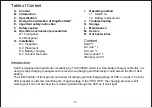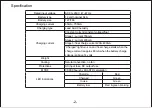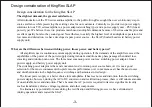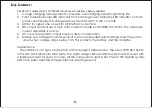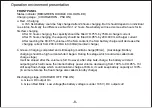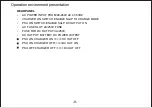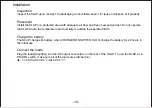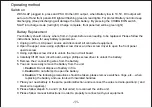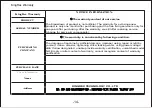
-3-
Design consideration of KingRex SLAP
Design consideration for the KingRex SLAP
The slightest demand, the greatest satisfaction
What are the differences between switching power, linear power, and battery power?
After introduction of the T20 series audio amplifier to the public, KingRex sought the next evolutionary step in
sonic excellence while preserving the existing value for our customers. Currently we provide two power supply
solutions for our T 20 series amplifiers, a power adaptor(switching type) and a power supply unit – PSU (linear
power type). We believe these two products match most audiophile demands because of their reasonable price and
excellent quality but also they sound good. Nevertheless, to satisfy the highest level of audiophile expectation for
low noise and distortion, we have developed a pure power source – the SLAP (Sealed Lead-Acid battery power
supply unit)
All amplifiers need a continuous current supply during operation. If the demands of the amplifier exceed the
capabilities of the power of the power supply during transient conditions deep bass passages then detail loss,
smearing and distortion can occur. The three most common power sources: switching power adaptor, linear
power supply, and battery power supply unit.
The switching power adaptor is the most convenient and common power source however it is not a good
selection for the music connoisseur who prefers sonic performance over convenience as it has the most noise
and distribution due to the high-frequency switching and harmonics in its design.
The linear power supply is a better choice for audiophiles. It has less noise and distortion than the switching
power adaptor, however, during the AC to DC conversion and rectification process, there is still minute amounts
of unavoidable noise and distortion. That’s because the AC power is required to traverse significant circuitry
such as transformer, diodes, voltage regulators, and other components.
To eliminate any potential for noise during the rectification and filtering process we have eliminated it
(during operation) and created the SLAP.
Summary of Contents for SLAP
Page 1: ...SLAP USER MANUAL SLAP USER MANUAL...
Page 16: ......


